
Editor
Images of a small boatyard, somewhere in Greece. Between the repairs and the boats’ departures, a team of men haul them ashore and set them afloat again. A 16 mm film built around gestures and movements that oscillate between a toing and froing, attachment and detachment, tension and tenderness.

Editor
A brother writes to his sister. A brother loves his sister. is it true that one can keep a young woman through writing? The ambition is great. A long correspondence of 149 letters, this film is based on the letters that my brother Didier wrote to me. Two actors carry his poetic writing to a new perception. Axel Bogousslavsky and Nathalie Richard are the brother and sister. They sing, they dance on the roads, on a journey, in the land of « Didierlangue ».A crazy bet, yes, funny, delirious, that of a fable, where the French language is shaken up.This film explores how writing and the experience of a hybrid language create a film about love.

Sound
A film that comprises in itself a form of dance – rather than a film about dance; an encounter between film and dance – rather than a film about a dancer. A documentary exploring Kō Murobushi’s dance and inner worlds, with purely cinematic means.

Editor
A film that comprises in itself a form of dance – rather than a film about dance; an encounter between film and dance – rather than a film about a dancer. A documentary exploring Kō Murobushi’s dance and inner worlds, with purely cinematic means.
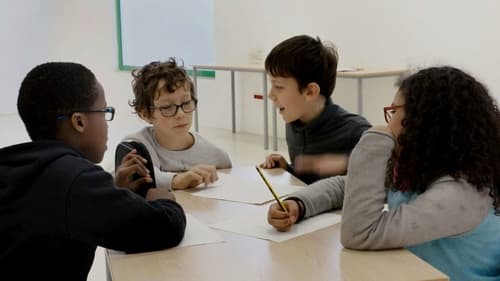
Editor
Artist and filmmaker Eric Baudelaire spent four years interacting with the pupils of a film class, at a secondary school in the Parisian suburb of Saint-Denis. Keeping himself on the sidelines, he gives way to the children to express their thoughts and dreams. Their remarks are intuitive, inquisitive, yet passionate and surprisingly mature, concerning rocky and complicated issues, ranging from racism, immigration, and identity, all the way to the possibilities of film as a medium. As time flows almost unnoticed, it is evident that these children have not only become the co-directors of this film but also the heroes of their own lives.

Editor
Also Known as Jihadi follows the progress of a young man's journey from France to Syria, and back to France, where he is incarcerated for allegedly joining Daesh. Based on real events, and drawn from thousands of pages of judicial documents, the work employs the so-called landscape theory (fukeiron in Japanese). The character's paths to radicalism are rendered purely through a series of landscape shots filmed at the locations traversed by the subject: a biography determined not by what the subject did, but by what the subject saw, and one that questions how these landscapes reflect the social and political structures that are the backdrop for a journey of alienation and return.

I Don’t Belong Anywhere - Le Cinéma de Chantal Akerman, explores some of the Belgian filmmaker’s 40 plus films. From Brussels to Tel-Aviv, from Paris to New-York, this documentary charts the sites of her peregrinations. An experimental filmmaker, a nomad, Chantal Akerman shares her cinematic trajectory, one that has never ceased to interrogate the the meaning of her existence. Thanks in great part to the interventions of her editor, Claire Atherton, she delineates the origins of her film language and her aesthetic stance.
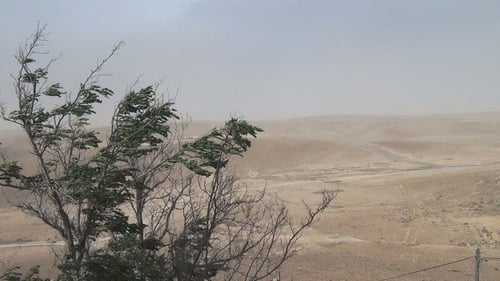
Editor
Documentary about humans dealing with changing technology, the basic concepts of communication, cinema, and Akerman's mother, seen in her Brussels apartment.

Editor
This story of an unexpected encounter between a young boy and a wounded foreigner somewhere in the Romanian wilderness is a parable about the freedom of man in modern society.
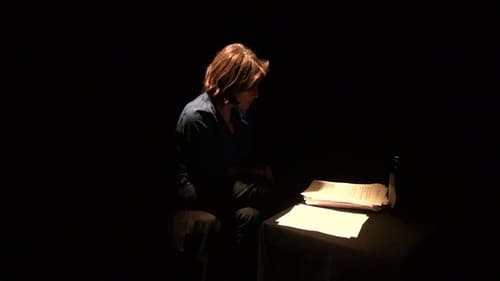
Editor
“My mother laughs prelude” is a performance from the book that Chantal made about her mother. In 2013, Akerman’s mother was dying. She flew back from New York to Brussels to care for her, and between dressing her, feeding her and putting her to bed, she wrote. She wrote about her childhood, the escape her mother made from Auschwitz but didn’t talk about, the difficulty of loving her girlfriend, C., her fear of what she would do when her mother did die. Among these imperfectly perfect fragments of writing about her life, she placed stills from her films. "My Mother Laughs" is both the distillation of the themes Akerman pursued throughout her creative life, and a version of the simplest and most complicated love story of all: that between a mother and a daughter.

Editor
Adaptación de la novela homónima "La locura de Almayer" de Joseph Conrad. Cuenta la historia de la ruina moral de Almayer, un joven holandés que va a Malasia en busca de un tesoro. Contratado por el rey de los piratas, se casa con su hija, pero a pesar de su buena suerte no renuncia a su objetivo, que se transforma rápidamente en una quimera destructiva.

Editor
A documentary exploring the rise and fall of Detroit. Compiling historical footage and interviews with the city's residents, this meditative documentary looks at a city reclaimed by nature and resettled by 21st century urban pioneers.

Editor
The people of the Mafrouza shantytown in Alexandria daily reconstruct themselves and the world around them, but they also question the camera, who answers them and thus becomes a character in the film.

Sound Editor
Maniac Summer consists of images and sounds recorded in Paris in the summer of 2009. It is a sprawling triptych without a beginning or end and with no specific subject or topic. The camera is positioned in front of a window and left running. It observes movements, registers noises coming from the street or nearby park, captures Chantal Akerman going about her business in her apartment: smoking, working, talking on the telephone. Fragments from the artist’s everyday life are featured in the installation’s central video, while the adjoining panels are more symbolically charged; in them, various images from the former have been isolated, modified and repeated. These abstract afterimages act as a kind of memory, looking back to the images in the installation’s centrepiece as so many shadows of its reality.

Cinematography
Maniac Summer consists of images and sounds recorded in Paris in the summer of 2009. It is a sprawling triptych without a beginning or end and with no specific subject or topic. The camera is positioned in front of a window and left running. It observes movements, registers noises coming from the street or nearby park, captures Chantal Akerman going about her business in her apartment: smoking, working, talking on the telephone. Fragments from the artist’s everyday life are featured in the installation’s central video, while the adjoining panels are more symbolically charged; in them, various images from the former have been isolated, modified and repeated. These abstract afterimages act as a kind of memory, looking back to the images in the installation’s centrepiece as so many shadows of its reality.

Editor
Akerman spends a brief period on her own in an apartment by the sea in Tel Aviv. She films from the apartment and in her narration she talks about her family, her Jewish identity and her childhood. She wonders whether normal everyday life is possible in this place and whether filming is a realistic option.

Editor
The American military forces has a long tradition of cooperation with the movie industry. Movie studios can save millions of dollars by securing use of military stock footage, equipment and manpower. But there will only be cooperation if the scripts are depicting the armed forces in a favorable way. The most realistic and successful war movies has generally been made without the military's support.
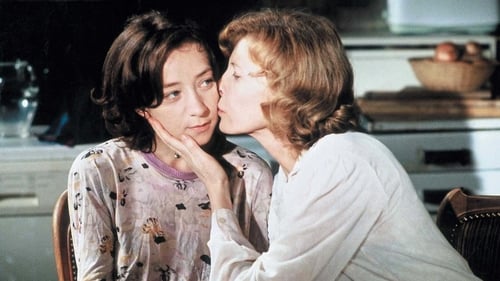
Editor
Tras enviudar, una mujer se va a vivir con su hija; ésta intenta sin éxito escribir un libro erótico, a pesar de los consejos que le da su madre que, a diferencia de ella, conoce a fondo el asunto. Como el piso les resulta pequeño deciden venderlo y mudarse a otro más grande. Mientras se dedican a visitar pisos, la vida de ambas da un vuelco.

Editor
A documentary look at the fate of Mexicans who cross the border into the United States.

Editor
Made out of the last sequence of the film Jeanne Dielman, 23 quai du Commerce, 1080 Bruxelles (1975). Seven monitors (in sync) video installation, color, sound
. The monitors are placed on pedestals and displayed in a circle
.
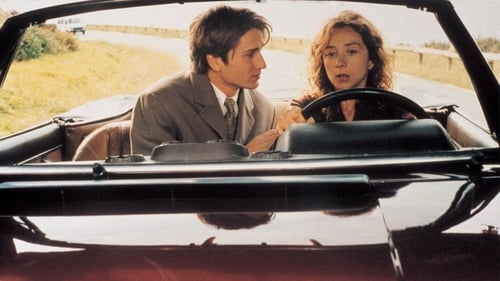
Editor
Simon (Stanislas Merhar) retiene a Ariane (Sylvie Testud) en su piso parisino e intenta saberlo todo sobre ella; no la deja salir sola y la somete a un incesante interrogatorio para poder controlar sus deseos y movimientos. A pesar de todo, Ariane consigue conservar, gracias a un cúmulo de mentiras, un espacio de libertad, tanto físico como mental.
Se inspira en la obra de Marcel Proust "La Prisonnière", quinto tomo de su gran obra "A la recherche du temps perdu" ("En busca del tiempo perdido").

Editor
Chantal Akerman viajó a la Sudamericana hacer una película sobre la vida en la tierra que informó e influyó William Faulkner y James Baldwin, pero poco después de su llegada, una historia impactante comenzó a dominar los titulares. El foco de la película de Akerman cambió dramáticamente, y ahora “Sur” explora las reacciones de la gente de Jasper sobre este crimen atroz.

Editor
Janine Bazin and André Labarthe approached Chantal Akerman about making a film for the series; eagerly, Akerman proposed a number of filmmakers—but all had already been done. So she suggested…“How about me?” Akerman creates a fascinating self-portrait that takes us through her career, aided by critics Emmanuel Burdeau and Jean Narboni and filmmaker Luc Moullet.

Editor
Chantal Akerman reads a script detailing the woes that befell her on the day she thought about "The Future of Cinema". The camera continuously rotates 360 degrees around her apartment as she rereads the script at an exponentially increasing speed. At its heart, an homage to Godard.
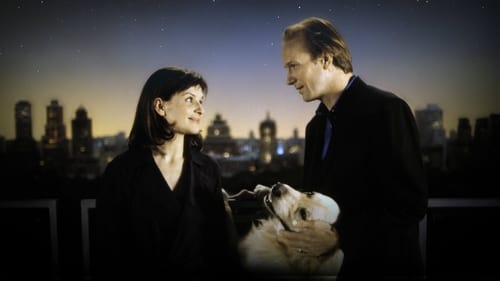
Editor
Un psicólogo norteamericano que está al borde de un ataque de nervios y una bailarina francesa intercambian sus apartamentos de Nueva York y París. No se conocen, pero la personalísma decoración de sus casas van despertando la curiosidad del uno por el otro.
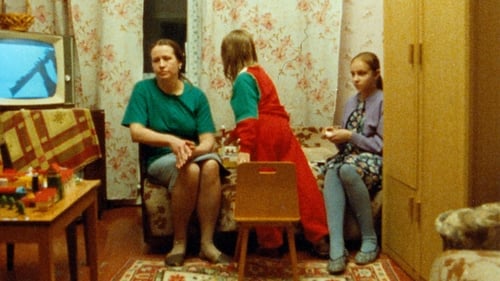
Editor
Chantal Akerman has toured Eastern Europe through Russia, Poland, Ukraine filming everything that moved her : faces, streets, cars, buses, stations, landscapes, interiors, queues, doors, windows, meals. Women and men, young and old passing or stopping, seated or standing. Days and nights, rain, snow and wind, winter and spring.

Editor
Commissioned for the centenary of the famous French architect and designer Robert Mallet-Stevens and shot on the street that bears his name in Paris' 16th arrondissement, Rue Mallet-Stevens depicts a mysterious, nocturnal scene of romance (featuring Akerman and her partner, the cellist Sonia Wieder-Atherton) unfolding before and inside one of the street's modernist constructions.

Editor
A filmed adaptation of Rose Leiman Goldemberg’s play, based on Sylvia Plath’s intense correspondence with her mother Aurelia, from the time the poet was in university until her suicide. Delphine Seyrig and her niece Coralie Seyrig recite Sylvia and Aurelia’s letters to the audience directly.

Editor
Total laryngectomy, a mutilation that affects the face and the voice, can be lived as a profound metamorphosis. Joël Perrotte undertook that surgery in 2007. After becoming mute, his first reaction was to retreat from the outside world, in the basement of his home. Thanks to his wife's support, he surfaced back, and found the strength to learn a new voice and become part of the society. The film tells the story of this extraordinary metamorphosis.



























